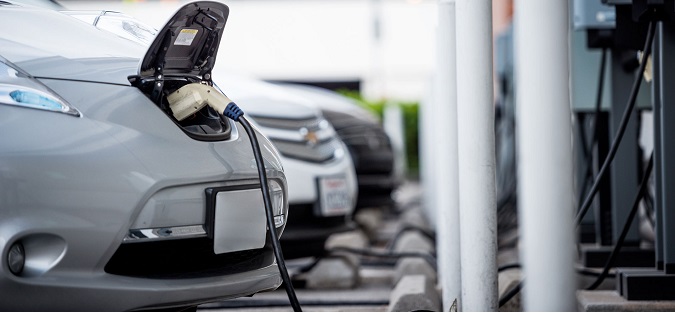Indonesian Government Preparing Roadmap for Electric Car Industry
Discussions about the regulatory framework - including incentives - for the electric car industry in Indonesia are ongoing. Hence, stakeholders in the country's automotive industry are eagerly awaiting for results of government discussions and a roadmap before investing in manufacturing facilities for the launch of electric cars on the Indonesian market.
Several officials from a number of ministries in Indonesia stated that it will still require time for the government to determine the exact regulatory and fiscal framework for electric cars in Southeast Asia's largest economy.
Officials updated local media reporters at a special event on Monday (27/02) when the Mitsubishi Motors Corporation donated 10 electric cars as well as four low-emission electrical power sources to recharge the cars. Mitsubishi donated these products to the Indonesian government as a sign of its support for the development of the electric car (and related infrastructure) in Indonesia's low carbon emission vehicle (LCEV) program. By 2025 the Indonesian government wants LCEVs to make up at least one fifth of all vehicles that are manufactured domestically.
Pratikno, Indonesia's Minister of State Secretariat, said the topic of electric car is currently being debated by several ministries as it requires synergy between various ministries.
Meanwhile, Indonesian Industry Minister Airlangga Hartarto added that the government plans to scrap a 40 percent luxury goods tax on sales of electric cars as well as drastically cut the import tax on these items from up to 40 percent (depending on exact vehicle) to 5 percent. This is currently being discussed by the government and a decision is expected to be taken soon. Currently, an electric car is about 30 percent more expensive than a conventional car in Indonesia. If more affordable, then demand for electric cars is expected to rise and thus investors will become more willing to invest in manufacturing facilities.

Similar to various other countries, the Indonesian government also wants to offer fiscal incentives for the development of a domestic electric car manufacturing industry. The type and level of incentives are currently still being studied by both the Finance Ministry and Industry Ministry.
Karen Lim, President Director of BMW Group Indonesia, hopes to see the creation of a roadmap that includes fiscal incentives based on vehicles' gas emissions. She said that with government support growth can be achieved rapidly. For example, in the Netherlands sales of the hybrid BMW vehicle surged 50 percent. This can also be achieved in Indonesia.
Meanwhile, Davy J. Tullian, Vice President of Nissan Motor Indonesia, said his company is waiting for the detailed roadmap of the Indonesian government before launching the electric car in Indonesia.
Read also: Overview of Indonesia's Automotive Industry
Kukuh Kumara, General Secretary at the Indonesian Automotive Industry Association (Gaikindo), added that Indonesia will need enough spots to recharge the electric cars. Currently Indonesia only has 1,500 electrical power sources for the vehicles. But 1,100 are located in Jakarta, hence making it very difficult for consumers outside the capital city to use an electric car.
The Boston Consulting Group predicts that by the year 2035 at least 30 percent of all motorized vehicles around the globe will run on electricity. Currently, the electric car is particularly booming in China, the USA and Europe. In China sales of these vehicles rose 73 percent (y/y) last year. Meanwhile, based on EV-Volumes, worldwide sales of electric cars rose 58 percent (y/y) to 1.22 million in 2017.
Car & Motorcycle Production Targets Indonesia:
| Year | Conventional Cars |
Low Carbon Emission Vehicle Cars |
| 2020 | 1,350,000 | 150,000 |
| 2025 | 1,600,000 | 400,000 |
| 2030 | 2,250,000 | 750,000 |
| 2035 | 2,800,000 | 1,200,000 |
| Year | Conventional Motorcycles |
Low Carbon Emission Vehicle Motorcycles |
| 2020 | 7,200,000 | 800,000 |
| 2025 | 8,000,000 | 2,000,000 |
| 2030 | 9,375,000 | 3,125,000 |
| 2035 | 10,500,000 | 4,500,000 |
Source: Bisnis Indonesia
Bahas
Silakan login atau berlangganan untuk mengomentari kolom ini
